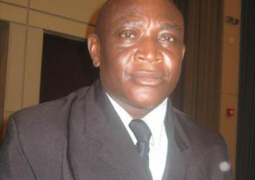The Gambia on 15 October 2010 joined the rest of the world in commemorating World White Cane Day.
The day is meant to enlighten motorists, pedestrians and the public on the importance of the white cane to blind person.
As we observe the day, we should change our attitude towards blind people, and give them all the support they deserve in society.
The need to empower the blind people is very important, especially at a time when we have massive flow of traffic in every part of the country.
We believe that if fully empowered, the visually impaired can equally contribute to nation-building.
If more people understand the functions of the white cane, it will be easier for people using them to move freely within their environments.
Our drivers, in particular, must understand the plight of our blind people. It?s pathetic to see some of our visually impaired stranded on the roadside without receiving adequate attention from drivers. Such negligence and indifference to the blind is unacceptable and must stop; our drivers must desist from such behaviour.
The blind are equally human beings and, therefore, need equal treatment as those of us with good sight. What people need to realise is that the white cane helps the visually impaired live normal lives.
The white cane often used by blind people makes travelling easier for them. We should, therefore, respect the cane as it gives them the sense of direction.
In countries like the US for example, the White Cane Law in Florida states that traffic must stop whenever a person carrying a white cane or travelling with a guide dog enters the street, and must stay stopped until the person has crossed safely. Therefore a similar policy is needed here for the betterment of our visually impaired.
Some blind persons are sometimes more productive than normal people. Therefore, when such people are supported they can bring rapid development to society.
"Kindness is a language which the deaf can hear and the blind can see"
Mark Twain


